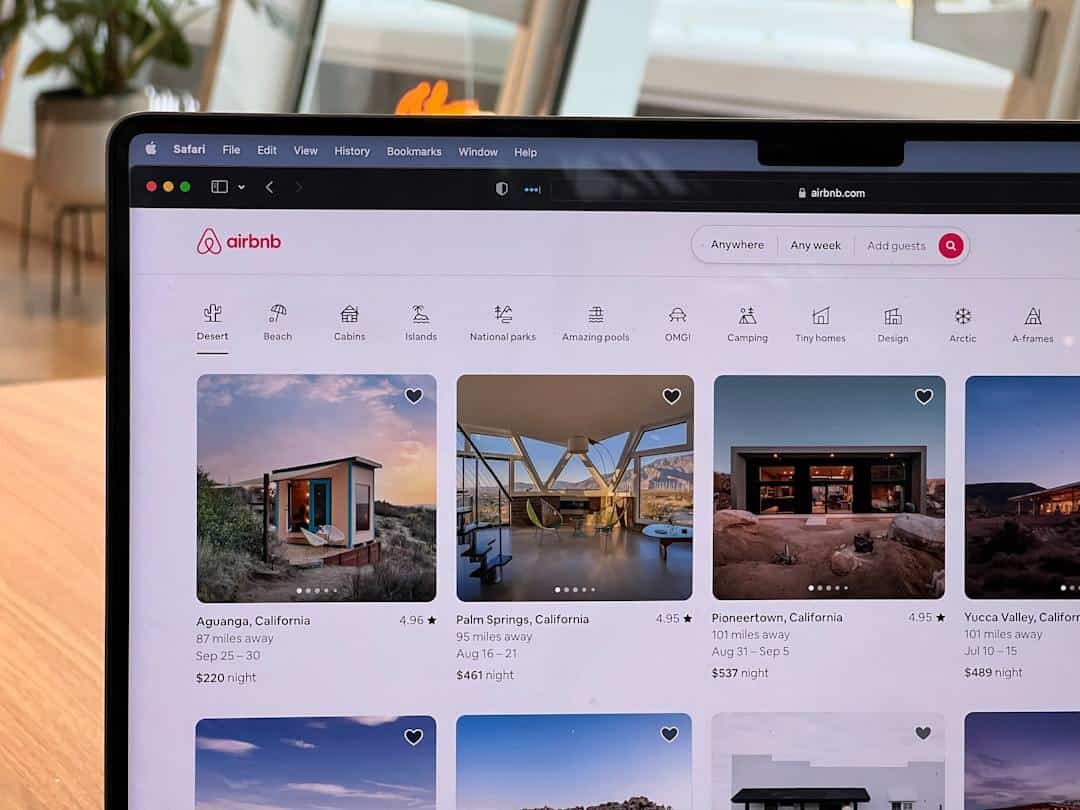Don’t let your unique space or spare room go unused; turn it into a source of income! Yes, you read that right. If done correctly, you can earn a substantial amount of extra cash by renting out your spare room or space through Airbnb.
Don’t worry if you’re unsure how to get started—this post will guide you through the process of setting up your property or room as an Airbnb rental. And without further ado, let’s get started!
1. Understand Legalities And Tax Concerns

Before anything else, it’s essential to familiarize yourself with the legalities and tax concerns related to an Airbnb rental property. Doing so will help you avoid potential troubles and protect yourself against any lawsuits that renters may bring.
- Local Regulations: Whether you plan to run short-term or long-term rentals, it’s crucial to research your local regulations. Understand the specific zoning laws, occupancy limits, and safety requirements that you must comply with in your city or town. Some locations may require Airbnb hosts to obtain a permit or business license before operating. Additionally, certain cities impose restrictions on how long you can rent out your property each year. You may also need a short-term rental property permit or a tax registration certificate in your area.
- Tax Obligations: You must also comply with tax obligations at the federal, state, and local levels. These obligations may include paying taxes on rental earnings and occupancy taxes in some jurisdictions. While Airbnb offers helpful resources, it’s best to consult with a trusted tax advisor. They can guide you on how to profit from Airbnb while staying compliant with tax laws.
- Landlord Or HOA Approval: If you don’t own the space or property, the first step is to carefully review your lease agreement. Some landlords may prohibit subletting or using the property for short-term rentals. If subletting is allowed, be sure to obtain written permission before proceeding. The same applies if you live in a homeowner’s association (HOA), as they often have regulations regarding short-term rentals. Review your HOA guidelines and secure written approval before listing your space on Airbnb.
Don’t skip this crucial initial step! Ensuring you are on the right side of the law before starting your Airbnb business will lead to smooth operations and minimize liabilities.
2. Prepare Your Airbnb Rental

You’re set after learning the legal side of things. So, what’s next is to get your vacation rental ready! Make sure that you can impress your potential guests to get bookings—a crucial aspect of how to make money on Airbnb.
Here’s how to transform your space from “lived-in” to “guest-ready” and potentially generate passive income through your Airbnb business:
- Make It Sparkling Clean: Aim for sparkling cleanliness for your Airbnb rental. Because who would want to stay in a messy space, right? Personally, I would expect a fresh and hygienic environment in an Airbnb rental property. Thus, you must do a deep clean— focusing on areas like bathrooms, kitchens, and floors. No time to clean? Why not hire professional cleaning services?
- Create Good First Impressions: Set the tone right through the entryway. A clutter-free, well-lit, and welcoming entrance can go a long way in the guest experience. Why not have a fresh coat of paint, a stylish doormat, or a small plant?
- De-Clutter And De-Personalize: Remember, you’re renting it out to other people, not to yourself. Thus, avoid cluttering it with personal belongings even though you want the space to feel comfortable. Don’t hang family photos, display collections, or anything that might make guests feel like intruders. What’s best is to provide a clean and neutral canvas for them to settle in.
- Don’t Skimp On The Amenities: Boost guest experience by providing them with essential amenities like fresh towels, linens, basic toiletries (shampoo, soap, etc.), toilet paper, and paper towels. You can even be more thoughtful by adding coffee, tea, bottled water, or snacks to elevate the guest experience.
- Think Functionality: Check that all furniture and appliances are in good working order. If you have specific instructions for using appliances like the oven or washing machine, put them in. That way, guests can feel comfortable using the space with ease.
- Be Tech Conscious: People want reliable internet access almost anywhere, so reliable Wi-Fi is a must.
- Add Local Touches: You may want to add a local guidebook or recommendations for restaurants and attractions. Doing so shows that you care about the guests’ experience, especially their exploration of the area.
Your Airbnb rental should feel like a home away from home. So, focus on cleanliness, functionality, comfort, and thoughtful touches to achieve success and ensure your guests have a memorable stay.
This can lead to positive reviews and potentially increased bookings, positively impacting your Airbnb host income.
3. Set Your Pricing

Now, the exciting part is setting a price that can determine your earnings. Pricing should be strategic to ensure that you take home earnings that you deserve while keeping your guest satisfaction indexes at an all-time high.
So, how should you price your Airbnb rental?
- Understand the Art of Pricing: If you want to take your Airbnb earnings to the next level, master the art of pricing. This is an essential step in the guide on how to make money on Airbnb because you need to price your listing correctly to earn what you deserve. To start, you have to research local comparable listings, adjust your rates based on seasonal demand, and stay ahead of the competition by offering prices that appeal to travelers while still being profitable.
- Implementing Dynamic Pricing: With dynamic pricing strategies, you can automatically adjust nightly rates based on factors like demand, seasonality, and local events. This lets you boost your earnings during peak periods while maintaining a steady occupancy rate during slower times.
- Offering Special Discounts and Incentives: Who couldn’t resist discounts? This technique is an excellent way to boost occupancy rates. You can offer exclusive deals for weekly or monthly stays, last-minute steals, and loyalty rewards for repeat customers.
Don’t rush to put up your Airbnb listing. When you do, you may overlook some expenses like extra fees and cleaning charges. Hence, pricing it right is the key. Ensure that you’re charging the right amount to balance your budget.
4. List Your Airbnb Property

You’ve prepped and priced your rental property. Now, you’re ready to create an Airbnb listing, the digital storefront that may become a successful vacation rental. And it’s vital to craft it if you want to maximize your host income.
Here’s a breakdown of the critical steps to listing your Airbnb rental:
- Create A Captivating Title and Description:
Craft an attention-grabbing title that highlights your space’s unique features, such as “Cozy Mountain Retreat with Stunning Views.” Use keyword research tools to include terms potential guests are searching for. In your description, tell a compelling story about the ambiance, amenities, and benefits of your rental, focusing on what guests can experience—whether relaxation, adventure, or a comfortable workspace. - Use Eye-Catching Photos:
Invest in high-resolution photos to showcase your space effectively. Capture every room, including outdoor areas, and highlight unique features from various angles. Ensure good lighting during your photo sessions to create a bright and inviting atmosphere. Consider hiring a professional photographer to enhance your listing’s appeal. - Set Clear Guest Expectations:
Clearly outline house rules, guest policies, and available amenities. Be transparent about restrictions, such as smoking, parking, and quiet hours, so guests know if your property suits their needs. - Optimize For Search:
Incorporate relevant keywords naturally throughout your title, description, and tags to improve your listing’s visibility in search results. - Promote Your Listing On Social Media:
Leverage social media platforms to promote your Airbnb listing. Share high-quality photos, guest testimonials, and local attractions to engage potential guests. Consider creating a dedicated page for your rental or using relevant hashtags to reach a broader audience. Collaborating with local influencers or travel bloggers can also help increase visibility and attract more bookings.
Once you do these, it’s time to think about hiring a co-host.
5. Hire A Co-Host

Running an Airbnb rental isn’t a walk in the park—especially at first. Many Airbnb hosts find that managing a successful rental business can be rewarding, but if you’re a one-person team, it can quickly become overwhelming, particularly as your bookings grow.
Enlist help by hiring a co-host; they can be a game-changer for your business. A co-host, as the name suggests, shares the responsibilities of managing your Airbnb listing. You can delegate various tasks to them, including:
- Guest Communication: Allow your co-host to respond to inquiries, manage bookings, and provide essential information to guests throughout their stay.
- Cleaning And Turnovers: Cleanliness is a top priority. A co-host can help ensure that your rental is spotless and ready for incoming guests, or they can outsource this task to a professional cleaning service.
- Guest Management: A co-host can check guests in and out and address any concerns they may have during their stay, ensuring a smooth experience.
- Listing Management: If you lack the time to update your listing, adjust pricing, and respond to reviews, a co-host can assist with these tasks, keeping your property competitive and appealing.
- Marketing And Promotion: A co-host can also help promote your listing through social media and other channels, increasing visibility and attracting more guests.
A co-host can be a valuable asset in helping you manage your Airbnb business effectively. Choose someone reliable and trustworthy who aligns with your hosting goals to ensure a smooth and successful partnership.
FAQs
To provide you with more information on this topic, I scoured the internet for the most frequently asked questions and researched the answers just for you!
Can you make good money on Airbnb?
Airbnb is one of the best options for generating residual income. Yes, you can make a substantial amount of money, but it’s like baking a cake—you need the right ingredients (an attractive space, competitive pricing, and a solid marketing strategy) and the willingness to put in the effort.
With the right mix, you can create a profitable Airbnb business that generates a steady income stream.
What type of Airbnb is most profitable?
As mentioned, there are various ways to earn money on Airbnb. However, rental arbitrage is often the most profitable option, as it’s akin to buying low and selling high—you rent a property and then re-rent it on Airbnb at a higher rate.
This approach requires careful research and negotiation with property owners. Other profitable options include offering Airbnb Experiences, which can command premium prices, and vacation rentals in high-demand areas.
What is the 90-day rule on Airbnb?
The 90-day rule restricts hosts from renting out their property for more than 90 days in a year. It serves as a speed bump on the highway of short-term rentals, helping to maintain neighborhood harmony and prevent over-commercialization.
This rule varies by city, so it’s essential to check local regulations before setting up your Airbnb business.
Conclusion
Making money on Airbnb isn’t just about putting up your space and crossing your fingers. It takes a smart plan, a keen eye for details, and a dedication to giving your guests a great experience.
By using the tips and tricks we’ve shared in this blog post, you can tap into the full potential of your Airbnb business and turn your property into a steady source of income. Don’t get stuck in boring hosting routines; they won’t lead to lasting success. Make a memorable impact by connecting with your guests through excellent service.
And if you like content like this, be sure to subscribe to my mailing list, follow my socials, and watch on my YouTube channel!






